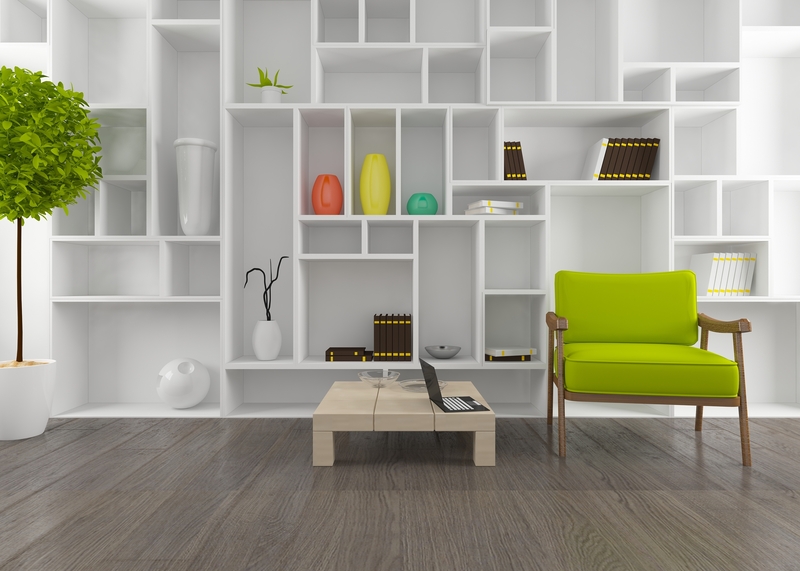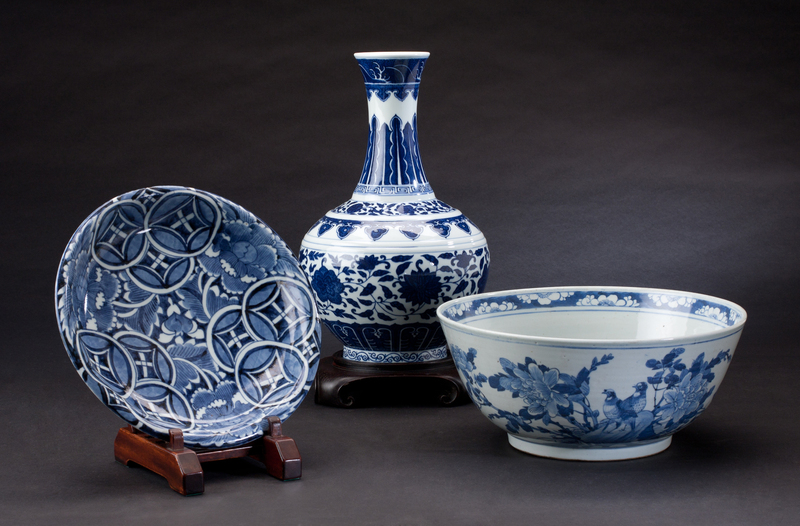The Art of Moving Pianos: An Expert's Touch Required
Posted on 25/05/2025
The Art of Moving Pianos: An Expert's Touch Required
Moving a piano is a delicate process that demands more than brute strength. This intricate undertaking combines science, experience, and an acute awareness of the fragile craftsmanship that each piano embodies. Whether it's a grand piano in a concert hall or an upright beloved by a family, transporting such an instrument is no ordinary moving task. An expert's touch is not just recommended--it's absolutely essential.

Why Moving Pianos Requires Special Attention
Every piano, regardless of its size or make, is a highly sensitive musical creation. The design of these instruments involves thousands of moving parts, finely tuned strings, and precision balances. Unlike conventional furniture, mishandling a piano during relocation may irreversibly damage both its structure and acoustic integrity. Piano moving professionals possess the right skills and equipment to preserve the instrument's functionality and splendor.
Understanding the Intricacies of Piano Construction
- String Tension: Most upright pianos carry over 200 strings, each handled at an immense tension--up to 20 tons in total.
- Delicate Actions: The hammer, keys, and pedals make up a complex system that's both sturdy and fragile.
- Sensitive Woodwork: The body of a piano, built primarily from select woods, is susceptible to bumps, shifts, and humidity changes.
The Hidden Risks of DIY Piano Moves
Many attempt to save costs by moving their own pianos. However, the risks often overshadow the potential savings, and the damages can be excessive. Unskilled attempts can lead to:
- Scratched or cracked varnish
- Damaged internal mechanisms
- Broken or shifted piano legs
- Personal injuries from the instrument's substantial weight
Hiring a professional piano moving service is, therefore, more than just a convenience; it's a crucial investment in your instrument's longevity.
The Science Behind Expert Piano Moving
Skilled piano movers employ proven techniques paired with custom-built equipment designed specifically for the job. Understanding the art and science of piano transport minimizes risks, ensuring that your instrument arrives safely and remains perfectly playable.
Essential Equipment for Safe Piano Relocation
- Piano Dolly: Specially designed to distribute the piano's weight and provide mobility.
- Straps and Harnesses: Secure the instrument tightly during the move to prevent shifting.
- Protective Blankets: Shield the exterior from scratches and impact.
- Ramp Systems: Enable the safe transition of the piano over stairs or uneven terrain.
- Climate-Controlled Vehicles: Guard against temperature and humidity fluctuations that could affect the wood and strings.
These tools, paired with knowledgeable handling, help maintain the value and performance of your precious piano.
The Step-by-Step Process of Expert Piano Movers
To highlight just how methodical professional piano movers are, here's an overview of their approach:
- Assessment: The movers evaluate the piano's size, type, and the logistics of the space--measuring doorways, staircases, and potential obstacles.
- Protection: They carefully wrap every inch of the piano, from the sensitive keyboard to the legs and pedals, using padding and protective covers.
- Securing: Utilizing heavy-duty straps and specialized dollies, they stabilize the instrument for lifting and transport.
- Careful Navigation: Navigating tight corners, staircases, and narrow hallways with patience and skill, ensuring that both the piano and property remain unharmed.
- Loading and Transit: The piano is loaded onto a climate-controlled vehicle and anchored securely for its journey.
- Reinstallation: Upon arrival, expert movers reverse the procedure, placing the piano exactly as requested and checking for balance and stability.
Different Types of Pianos: A Unique Moving Challenge
Not all pianos are alike. Each type poses unique challenges, and moving techniques must be adapted accordingly.
Upright Pianos
Upright pianos, with their vertical design, are more compact but still exceedingly heavy and cumbersome. Moving an upright typically requires two to four professionals, each assigned specific duties:
- Lifting from structurally stable points
- Protecting pedals and protruding parts
- Securing and balancing the instrument on the dolly
Grand and Baby Grand Pianos
Relocating a grand piano is a true test of expertise. To prepare for moving, experts:
- Disassemble key components, such as the legs, lyre, and lid, to avoid stress on joints and hinges.
- Protect the harp and soundboard, which are among the most fragile parts.
- Use team-lifting and communication, ensuring balance and support throughout the operation.
Baby grand pianos, while somewhat smaller, demand similar care.
Digital Pianos
Though lighter, digital pianos contain sensitive electronic parts. They also require careful packaging to prevent shock and static damage.
The Role of Experience in Professional Piano Moving
The difference between amateurs and professionals comes down to experience. Seasoned movers have encountered every conceivable scenario--tight spiral staircases, historic apartments with narrow entries, and multi-floor commercial spaces. They know precisely how to adjust technique and equipment to suit any circumstance.
Problem-Solving on the Move
- Identifying potential hazards (uneven flooring, low ceilings, weather changes)
- Improvising temporary ramps or supports
- Communicating clearly as a team to coordinate each stage of moving
- Maintaining maximum safety for both the instrument and the movers
Understanding Piano Insurance and Liability
Professional piano moving companies also offer insurance--a safety net that protects both the instrument and the owner against unlikely mishaps. Always inquire about coverage before hiring a moving company.
Tips for Preparing Your Piano for a Move
While only trained professionals should transport your piano, there are steps you can take to facilitate the process:
- Clear the Path: Remove rugs, furniture, and clutter from all routes the movers will use.
- Secure Loose Items: Take out any sheet music or decorative items from the piano.
- Inform Movers About Stairs & Obstacles: Let movers know about any logistical challenges in advance.
- Control Temperature and Humidity: On moving day, keep the interior climate as stable as possible to protect the instrument.
*Note: Never attempt to move the piano yourself, even a short distance! The risks far outweigh any perceived benefits.*
The Cost of Hiring a Piano Moving Specialist
The average cost of piano transport depends on several factors, including the piano's weight, type, distance, and the complexity of the move. Here's what typically influences professional piano moving quotes:
- Piano dimensions and weight
- Accessibility (stairs, small doorways, elevators)
- Distance traveled
- Disassembly/reassembly requirements
- Insurance coverage
While the price may seem steep compared to standard movers, remember that piano moving is a specialized art. Paying for expertise ensures your instrument is preserved for future generations.
Caring for Your Piano After the Move
Once your piano has reached its new home, specialized care continues:
- Allow your instrument to acclimate to its environment before playing or tuning--usually 2-3 weeks is sufficient.
- Schedule a professional tuning after relocation. Changes in climate or orientation can affect pitch and intonation.
- Inspect the piano for any possible damage, even cosmetic, immediately after the move.
- Maintain consistent humidity to optimize sound quality and preserve the interior woodwork.
By treating your instrument with respect and caution before, during, and after transport, you can ensure it continues to produce beautiful music for years to come.

Choosing the Right Piano Moving Service
Selecting a reputable piano moving company requires consideration and research:
- Check credentials: Look for licensing, insurance, and professional association memberships.
- Read reviews and testimonials: Satisfied past clients are the best endorsement.
- Ask about process and equipment: True experts will gladly explain the steps taken to protect your piano.
- Compare quotes: Don't base your decision on price alone. Instead, weigh the value of experience and proven expertise.
Conclusion: Leave Piano Moving to the Masters
The art of moving pianos is a task that beautifully blends scientific technique, hands-on experience, and a deep appreciation for musical craftsmanship. From understanding the subtle mechanics inside each instrument to employing specialized tools and strategies, only trained professionals can guarantee your piano's safe passage. When the time comes to move your piano--no matter how near or far--choose a team that understands the artistry involved. Your piano represents more than an object; it's a living legacy, deserving expert care at every step of its journey.
Ready to Move Your Piano? Seek Out True Experts
Don't risk the joy your piano brings for the sake of convenience. Piano moving specialists offer the precision, protection, and peace of mind that only years of experience can provide. For a move as harmonious as your music itself, entrust your instrument to an expert's capable hands!



